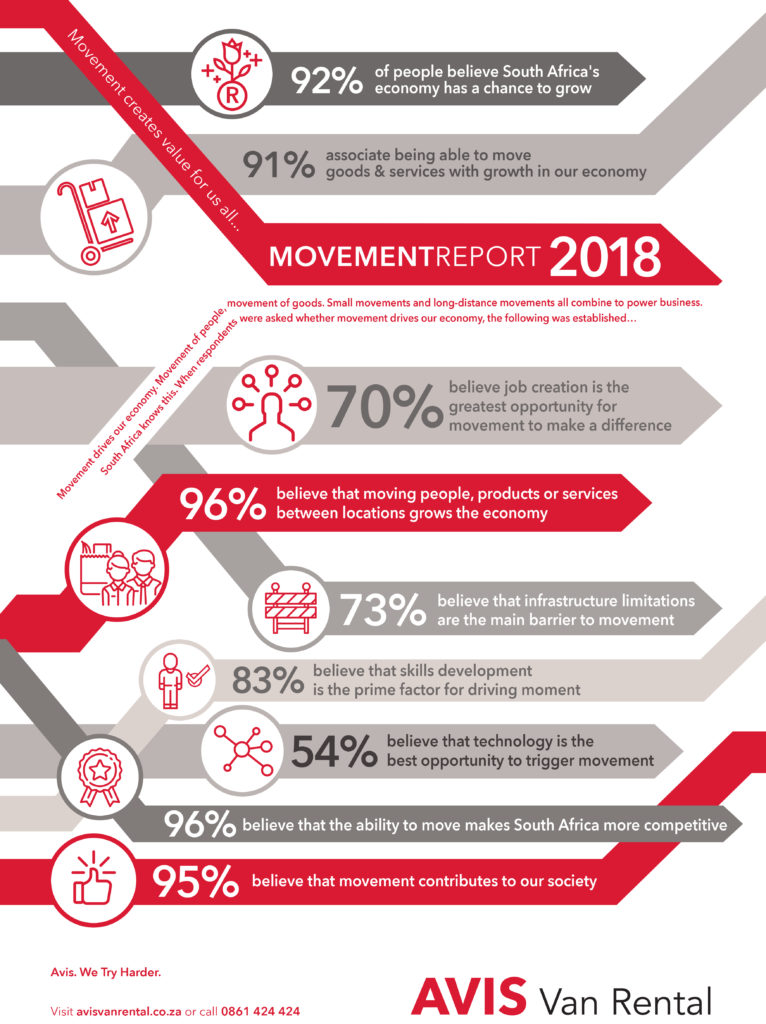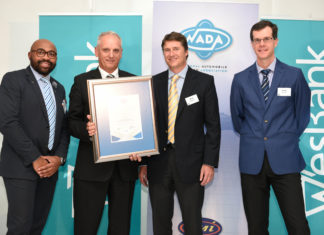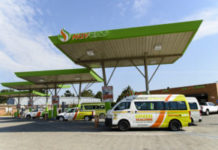Movement and the economy intimately linked writes Rebone Motsatsi, Executive Commercial for Avis southern Africa.
My work in the van-rental space has given me a great insight into the links between movement and the economy. The two are inextricably connected.
Like all sectors, commercial vehicle rental experiences a surge in business in periods of economic upswing. However, the almost direct correlation between van rentals and economic growth imply that movement is not just a gauge of the health of an economy, it is an economic driver in its own right.
The debate around cause versus correlation is hard to resolve until it has been tested by research. Avis Van Rental set out to do exactly that, with the Avis Van Rental Movement Report 2018 – a thorough survey of the perceptions of South African business about the role of movement in society.
In compiling the report, we commissioned research to gauge the perceptions of South Africans about the role of movement in our lives.
We spoke to business owners in the public and private sector, van rental customers and colleagues and partners in van rental. We spoke to people from micro, small, medium and large enterprise. We surveyed them on their attitudes to the economy and the role of movement within it.
The results of the Avis Van Rental Movement Report 2018 support what our experience within the van rental space has taught us: South Africans see movement as a core gauge of our country’s fortunes. It is true: when we are moving goods and services, our country is moving too.
The report will serve as sales tool and as a resource for stakeholders to understand the context of the van rental sector in the economy.
I’m always encouraged when I see goods vans in transit on our country’s roads, whether in the city or cross country. If goods are on the move, it’s a reliable indication that South Africa’s fortunes are on the rise.
Goods movement carries huge multiplier benefits. Movement implies fuel purchases; the products themselves will have been paid for; the vehicles have been hired or procured; and the goods will most likely be resold via retail, processed or used as inputs in other commercial ventures.
It’s not just movement itself that powers the economy, but how efficiently it takes place. This means the better the road network and its maintenance, the more effective the transport businesses, and the more sophisticated the logistics solutions, the more smoothly the economy will run.
Business agrees – 73% of respondents say infrastructure is the main barrier to movement.
Movement affects small, medium and micro enterprises – everything from a one-man business run with a bakkie and a cellphone to a multinational corporation with a fleet of 18-wheelers. Despite the rise of the digital economy, at some point physical goods need to be exchanged, and that’s when we see the importance of movement.
It is also clear that investing in movement can be a key driver of growth. Business vehicle or fleet finance is an investment that goes directly into enabling the exchange of goods and services.
Fully 97% of private-sector respondents and 94% of respondents from the public sector agree that movement drives the economy.
This applies across the business spectrum – to the private sector and state-owned enterprises. All require movement – transport, logistics and infrastructure – to deliver their services effectively.
The causal relationship between movement and the economy is fascinating. The learning from the Avis Van Rental Movement Report 2018 is that mobility and economic growth enjoy a mutually reinforcing symbiotic relationship.
Respondents are almost unanimous that there is a strong correlation between economic growth and the ability to move goods and services. They also see clear opportunities for van rental.
When asked what the greatest opportunities were for van rental to make a difference in the economy, 26% of van rental clients highlighted job creation and 26% favoured SMME market access.
The Avis Van Rental Movement Report 2018 tells us that economic growth and movement are joined at the hip. We can’t have one without the other. Those developing policy and business strategy would do well to bear this in mind.
For me the learning is that, as a society, we should do all we can to enable movement, to facilitate the efficient transfer of goods and services. This will lubricate the wheels of our economy and help us launch our country out of the starting blocks of economic growth. I look forward to being part of it.
















